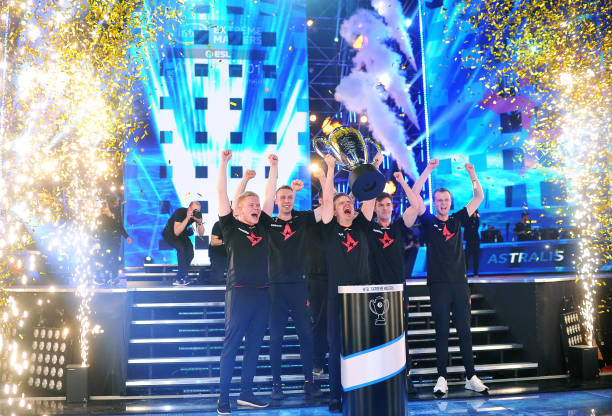Fresh off the heels of the latest big tournament for the popular video game Fortnite, it is plain to see that the eSports field is booming. With stations like ESPN broadcasting these bouts, the field is slowly but surely being accepted as a “true sport” – much like basketball and football. However, the field is still very young, and largely unorganized compared to the well-oiled machines that traditional sports organizations have built. One glaring need the field is facing is for sport psychologists and mental skills coaches.
Sport Psychology and eSports: Two Growing Fields and a Natural Partnership
From Their Bedroom to the Big Stage
Most athletes that play in the NFL or NBA were groomed to go pro at a young age. They played pop warner, high school ball, and in college, slowly taking jumps that prepared them to be ready for the spotlight that professional athletes are thrust into. They had large support systems, coaching staffs, and mentors that taught them skills like team building, mental fortitude, and how to deal with losses and pressure.
But this is where eSports athletes differ. Sure, some have had the idea of going pro in their minds for years, but most didn’t. And even the ones that did have those big plans didn’t have access to the resources that were necessary for sustained success at the professional level. For most, they are just playing a video game for fun with their friends, and get really good at it. Going pro just kind of happens. Then, they are suddenly thrust onto a huge stage in the public eye and they are simply not ready for it.
Case Study: Astralis and CS: GO
Sport psychology and eSports had their first high-profile partnership with the Counter-Strike: Global Offensive (CS: GO) team, Astralis. Astralis was known for being an extremely skilled team who many thought should have been able to win many tournaments, but they always ended up choking in the semi-finals. It was like a curse that they could not break.
Then they turned to sport psychology. They hired Mia Stellberg, a mental skills coach to work on the getting over the hump. Stellberg worked with the team on cohesion and spirit to ensure that everyone was communicating effectively and trusting each other. She also gave each team member individual time to work on their own weaknesses. She got them all to believe that they could win.
And they did. With her guidance, they were finally able to not only make it past the semi-finals but also win the entire tournament. The team finally felt they had the mental fortitude to outlast their competition, and they made it happen. Check out the video below for the entire process:
The Rise of Sport Psychology Amongst Professionals
It is only recently that sport psychology is gaining respect as a field. Although many athletes have their own individual sport psychologists, many organizations are starting to employ one for their entire team. In terms of U.S. sports, baseball and the MLB have been the most open to the field. In fact, 26 of 30 teams currently have a sport psychologist or mental skills coach.
And it makes sense. In this day and age, almost every pro has top-tier athleticism and physical skills. So what is it that really separates an elite athlete to just an average one? Their mental game. Most that make it to the professional level of any sport have been the best player on the team for their entire lives. They are not used to losing, and often dominate their competition.
As professionals, the playing field is evened out. They might not be the starter for the first time ever. Winning doesn’t come as easily, if at all. The pressure and spectators are at a whole new level. Some players get caught up in egos or even just withdraw completely, and they end up out of the sport completely in just a few years.
Necessary Skills of eSports Teams
These are many of the same issues faced in eSports. Once moved to spaces where they are only playing the best of the best, just playing the game isn’t the most important part. Players have to be able to build team cohesion, both online, and offline. Each team member needs to feel like they belong and trust each other. The team has to learn to move their online avatars in formation just the same as athletes on a court or field have to do.
They have to know how to deal with loss or even criticism from their teammates and the outside world. Fear of negative evaluation from spectators can cause them to freeze up and not play to the true level of their skill. These are all things that traditional athletes are coached up and warned about for years. But an eSports athlete might be dealing with all of the sudden, and be blindsided.
The Future of Sport Psychology and eSports
The interesting part about eSports is that the field is still being molded. The same is true of sport psychology. Although many MLB teams now have one, just eight years ago, most didn’t. According to CNN Health, only four NFL team employed a mental skills trainer in 2017. This seems like the perfect opportunity for a partnership between the two fields.
It really makes sense. With less emphasis on physical skills and athleticism compared to other sports, it frees up those who plan to coach eSports teams to focus on the mental side of the game. It won’t be a surprise to see many coaches in the field have a sport psychology background in the years to come.
Main Image Credit:
Embed from Getty Images

